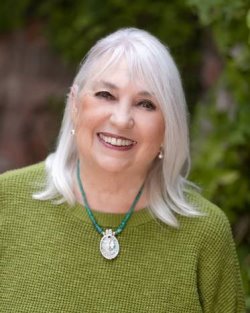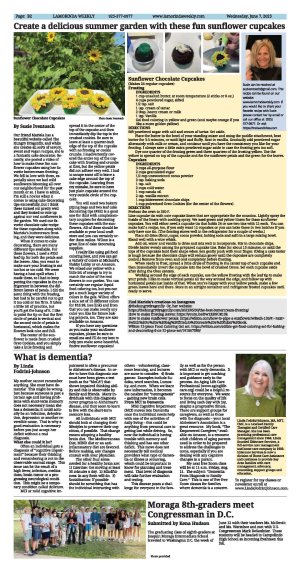| | Published June 21st, 2023
| What is dementia?
| | | By Linda Fodrini-Johnson |  | | Linda Fodrini-Johnson, MA, MFT, CMC, is a Licensed Family Therapist and Certified Care Manager. She has been practicing professional care management since 1984. Linda founded Eldercare Services, a full-service care management and home care company in 1989. Eldercare Services is now a division of Home Care Assistance and continues to provide Bay Area families with care management, advocacy, counseling, support groups and education. |
My mother cannot remember anything. She must have dementia! This might be wrong. Just because someone is past a certain age and having problems with short-term memory does not necessary mean she has a dementia; it could actually be an infection, dehydration, depression or another reversible cause. That is why a good evaluation is necessary before you just accept her deficit without a real diagnosis.
 What else could it be?
What else could it be?
 Often an individual gets a diagnosis of "cognitive impairment" because their thinking and remembering is not in the observable normal range. This issue can be the result of a high fever, infection, medications, brain tumor or a progressing neurological condition. This might be a temporary condition called delirium.
Often an individual gets a diagnosis of "cognitive impairment" because their thinking and remembering is not in the observable normal range. This issue can be the result of a high fever, infection, medications, brain tumor or a progressing neurological condition. This might be a temporary condition called delirium.
 MCI or mild cognitive impairment is often a precursor to Alzheimer's disease. In order to have this diagnosis one must have been given a test (such as the "MoCA") that shows impaired thinking ability and this is observable by family and friends. Many individuals with this diagnosis never progress to Alzheimer's disease, and they seem to learn to live with the short-term memory loss.
MCI or mild cognitive impairment is often a precursor to Alzheimer's disease. In order to have this diagnosis one must have been given a test (such as the "MoCA") that shows impaired thinking ability and this is observable by family and friends. Many individuals with this diagnosis never progress to Alzheimer's disease, and they seem to learn to live with the short-term memory loss.
 All individuals with MCI should look at changing their lifestyles to preserve their cognition, if possible. That change means adopting a healthy brain diet. The Mediterranean Diet, MIND diet or an anti-inflammatory diet are favored. Before making, any changes consult with your physician.
All individuals with MCI should look at changing their lifestyles to preserve their cognition, if possible. That change means adopting a healthy brain diet. The Mediterranean Diet, MIND diet or an anti-inflammatory diet are favored. Before making, any changes consult with your physician.
 The other four areas needed for a healthy brain are: 1) Exercise: Get moving at least 30 minutes a day. 2) Mindfulness: in any form will do. 3) Socialization: If possible should be something that has the individual interacting with others - volunteering, classroom learning, and lectures are some to consider. 4) Brain games: Examples include Sudoku, word searches, Lumosity, and more. When we learn new information, it becomes the catalyst for "neurogenesis" - gaining new brain cells.
The other four areas needed for a healthy brain are: 1) Exercise: Get moving at least 30 minutes a day. 2) Mindfulness: in any form will do. 3) Socialization: If possible should be something that has the individual interacting with others - volunteering, classroom learning, and lectures are some to consider. 4) Brain games: Examples include Sudoku, word searches, Lumosity, and more. When we learn new information, it becomes the catalyst for "neurogenesis" - gaining new brain cells.
 From MCI to Dementia
From MCI to Dementia
 Mild Cognitive Impairment (MCI) moves into Dementia once the individual needs help with one of the activities of daily living - this could be anything from personal care to getting lost while driving. So, now the individual is having trouble with memory and thinking and has one other deficit. This move does not necessarily tell medical providers what type of dementia or illness is occurring, which could be important to know for planning and treatment. That level of diagnosis will take further evaluation and testing.
Mild Cognitive Impairment (MCI) moves into Dementia once the individual needs help with one of the activities of daily living - this could be anything from personal care to getting lost while driving. So, now the individual is having trouble with memory and thinking and has one other deficit. This move does not necessarily tell medical providers what type of dementia or illness is occurring, which could be important to know for planning and treatment. That level of diagnosis will take further evaluation and testing.
 This disease poses a challenge for everyone in the family as well as for the person with MCI or early dementia. It is important to get coaching and guidance early in the process. An Aging Life Care Professional (www.aginglifecare.org) could be a helpful resource for everyone. We want to focus on the quality of life and living each day with joy, despite a progressive illness. There are support groups for caregivers, as well as those with the diagnosis - your local Alzheimer's Association is a great resource. My book, "The Empowered Caregiver," available on Amazon, is a resource adult children of aging parents need in order to be prepared to address the challenges to come, especially if you are dealing with any cognitive changes in a parent.
This disease poses a challenge for everyone in the family as well as for the person with MCI or early dementia. It is important to get coaching and guidance early in the process. An Aging Life Care Professional (www.aginglifecare.org) could be a helpful resource for everyone. We want to focus on the quality of life and living each day with joy, despite a progressive illness. There are support groups for caregivers, as well as those with the diagnosis - your local Alzheimer's Association is a great resource. My book, "The Empowered Caregiver," available on Amazon, is a resource adult children of aging parents need in order to be prepared to address the challenges to come, especially if you are dealing with any cognitive changes in a parent.
 My next free Zoom class will be at 11 a.m. Friday, Aug. 11. The subject: "Dementia: From Diagnosis to Family Care." This is one of five free Zoom classes for families where dementia is a concern. To register for my classes or newsletter enroll at www.LindaFodriniJohnson.com.
My next free Zoom class will be at 11 a.m. Friday, Aug. 11. The subject: "Dementia: From Diagnosis to Family Care." This is one of five free Zoom classes for families where dementia is a concern. To register for my classes or newsletter enroll at www.LindaFodriniJohnson.com. |
| | | | | | | | | | | | |



